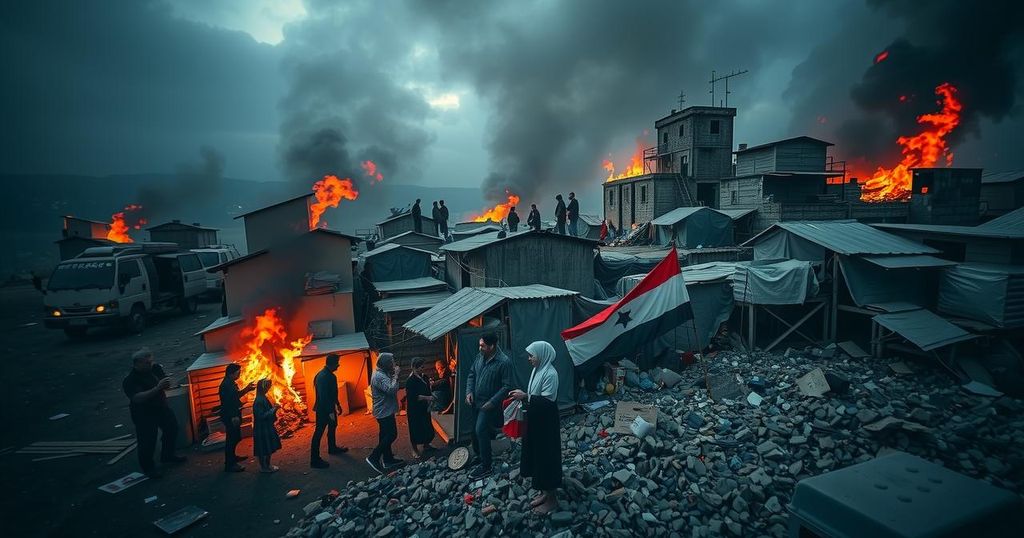Israel’s military actions in Lebanon have intensified, leading to over a million people being uprooted from their homes. Lebanese officials have demanded substantial international financial support to address the humanitarian crisis. Reports of war crimes have emerged, complicating the conflict further.
The conflict between Israel and Lebanon has significantly escalated, with Israel intensifying its military actions across various regions of Lebanon. Notably, the historic port city of Tyre, which is among the oldest cities worldwide, experienced recent bombings, following an Israeli directive for residents to evacuate. Furthermore, overnight strikes targeted the southern suburbs of Beirut, resulting in casualties and destruction. In a critical development, the Israeli military reported the elimination of Hashem Safieddine, who was considered to be the successor to Hezbollah’s leadership post the assassination of Hassan Nasrallah in September. In the wake of these aggressive operations, Lebanese Cabinet member Nasser Yassin acknowledged that more than 1.3 million people have been displaced due to the ongoing hostilities, emphasizing the urgency and extent of the humanitarian crisis. He stated the severe need for $250 million monthly to provide necessary assistance to the displaced populace. This assertion was made prior to an upcoming international summit concerning Lebanon in Paris, anticipated to address the ongoing crisis. Mr. Yassin likened the rapid displacement to the aftermath of an earthquake, noting the unparalleled scale of the crisis: “You know, overnight we’ve seen more than 1 million people being displaced by the attacks, hostilities, by the aggression. And this is similar to an earthquake. You don’t see this number in scale and the speed of it, except in major natural disasters. And this is what happened in 48 hours.” In addition to these events, credible reports from the Financial Times indicate that Israel’s military forces may have unlawfully entered a clearly marked United Nations base and are suspected of deploying the incendiary chemical white phosphorus, which has been linked to injuries to peacekeepers present in the vicinity. The use of such chemical weapons is categorized as a war crime under international law, leading to further condemnation of Israel’s actions.
The current hostilities between Israel and Lebanon have historical roots tied to geopolitical tensions in the Middle East. The recent escalation is characterized by airstrikes initiated by Israel, targeting both civilian areas and military-related sites, contributing to a rising number of civilian casualties and widespread displacement. The ongoing attacks have drawn international scrutiny, particularly concerning humanitarian impacts and potential violations of international law, including the use of banned weapons during conflicts. The necessity for humanitarian aid has become more pressing as the situation unfolds, prompting calls for international intervention and support.
In conclusion, the humanitarian crisis in Lebanon due to intensified Israeli military operations is profound, requiring urgent international attention and financial assistance to address the needs of over a million displaced individuals. The events underscore not only the immediate challenges facing Lebanon but also the potential for further escalation in regional tensions. Given the allegations of war crimes and the scale of human suffering, it is imperative for the international community to respond effectively to aid Lebanon during this crisis.
Original Source: www.democracynow.org







